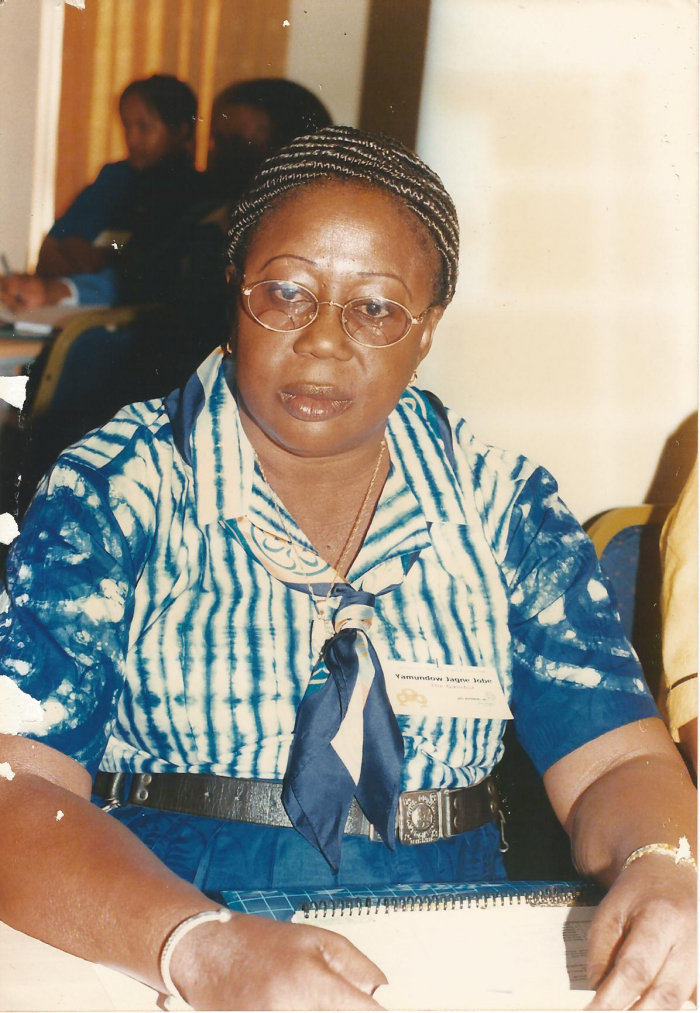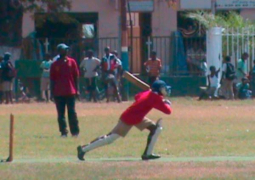
World Thinking Day was recently celebrated by Gambia Girls Guide Association in Kanifing.
Speaking on the occasion, Yamundow Jagne-Sonko said the celebrations making World Thinking Day (WTD) were normally held in February of every year but due to reasons beyond their control it was postponed to May.
The Chief Guide Commissioner of the Gambia Girls Guide Association used the forum to call on the people to volunteer and help others and spread the idea of volunteerism.
The day, she said, is a permanent annual global event on the calendar of the World Association of Girls Guide and Girl Scouts (WAGGGS) that provides a unique opportunity for Girl Guides and Girl Scouts in all countries of the world.
She noted that February 22 is the actual World Thinking Day, although for genuine reasons, associations may choose a different date for their country event.
The theme of the WTD 2012 is: “We can save our Planet”, based on the UN Millennium Development Goal 7, which has to do with environmental sustainability.
Team leaders and association members in The Gambia, that WAGGGS strongly aligns itself to the global struggle to overturn the increasing devastation of the natural environment throughout the world, whether it be saving billions of hectares of tropical forest from wanton felling; or protection of vital fisheries resources from overfishing; or stopping the use of ozone-depleting substance (ODS), or mitigating green- house emissions that cause climate change.
“The maintenance of balanced ecosystems in the world is the best assurance of our collective existence in today’s highly interdependent world.”
She told the august gathering before quoting the chairman of the WAGGGS’ as saying on the day: “Each year, millions of Girl Guides and Girl Scouts around the world celebrate World Thinking Day on 22nd February. This day, our message is “We can save our planet’, based on MDG7 - ensuring environmental Sustainability.”
She said WAGGGS’ is placing girls and young women at the very heart of their efforts to save the planet, adding: “We’ve developed a number of non-formal education programmes on environmental sustainability to help informed girls and young women about climate change.”
She says the day is a time to think about their sisters around the world and raise funds towards development of girls guiding and girls scouting movements.
Unfortunately, she explained, women and girls are disproportionately affected by the devastating effects of climate change.
“They walk further when water runs out, and during food shortages, the health of girls and young women is more likely to worsen than that of men due to gender inequity,” she said.
According to Madam Jagne-Jobe, the future of the world is in the hands of young people, especially girls and young women.
She emphasized that girls and young women must be at the centre of all policy and programme developments that aim to ensure our environmental future.
WAGGGS, in pursuing the MDG approach in the WTD celebration, focused on many initiatives key among them is ensuring that youth voice, especially that of the girls, is heard as well as getting them to contribute to the MDGs debate; influence decision-makers on issues girls and young women care about; raise awareness and mobilize action among WAGGGS’ 10 million and 50 million community-members to contribute to achieving MDGs; deliver result from grassroots project that contribute to achieving the MDGs.
She announced that the Gambia Girls Guide Association will adopt the WAGGGS advocacy strategy in fulfillment all of the above initiative, adding that the GGGA shall embark on the design and implementation of a series of environmentally-focused projects in environmental education, waste recycling and mass sensitization campaign in support of the attainment of MDG7.


